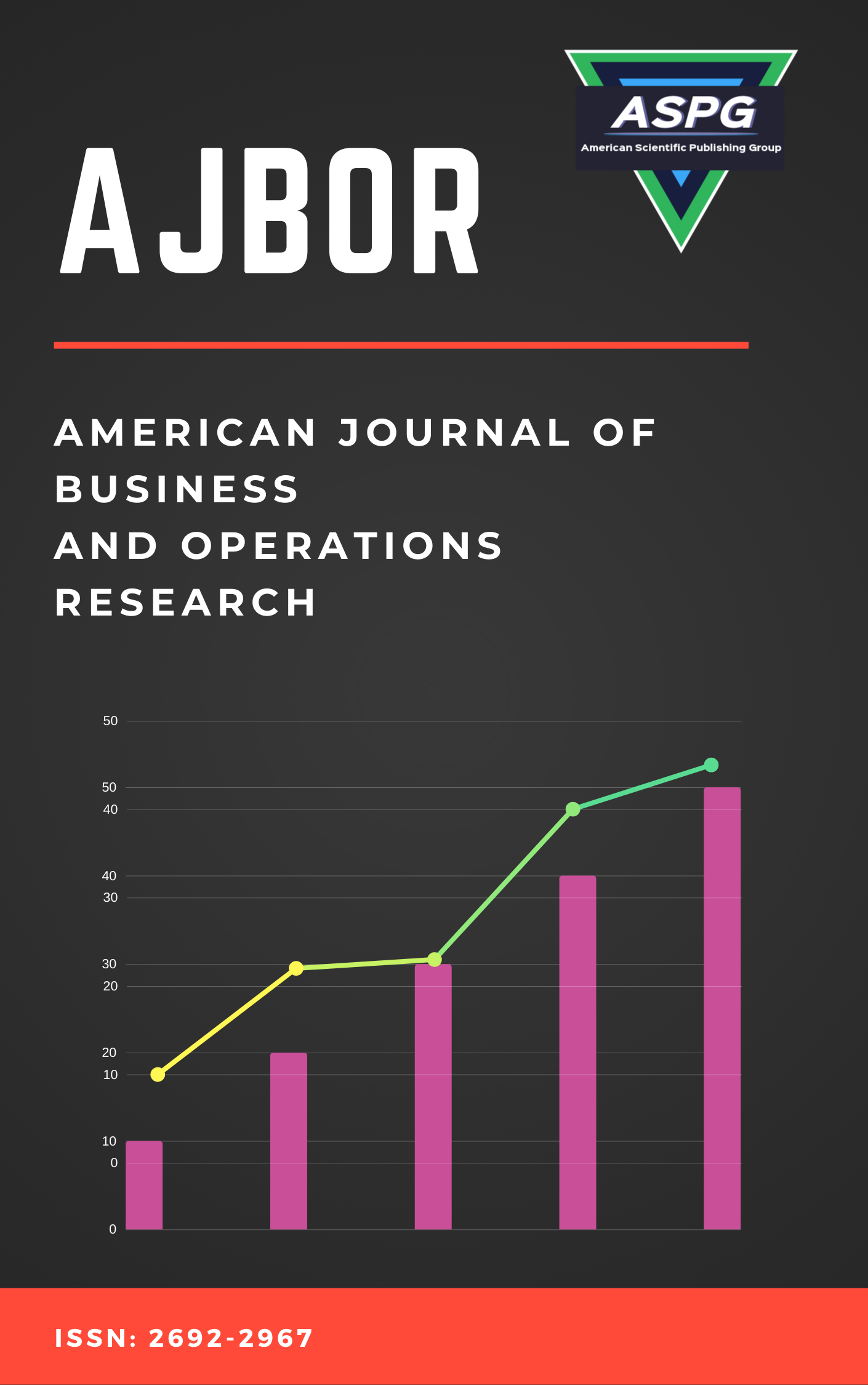

Volume 5 , Issue 2 , PP: 124-135, 2021 | Cite this article as | XML | Html | PDF | Full Length Article
Mona Mohamed 1 * , Ahmed M. AbdelMouty 2
Doi: https://doi.org/10.54216/AJBOR.050204
The purpose of this study is to strength information of sustainability Reports (SusRs) toward achieving sustainable development (SusD) according to SustainableDevelopment Goals (UN_SDGs). So, we proposed a robust framework for enhancing and appraising corporate sustainability performance by integrating BI in SusRs to provides a structured approach for nterprises.Due to ability of BI to facilitate collect, analyze, and report processes on sustainability data. Additionality it leads to informed decision-making and improved sustainability outcomes. Our framework highlights the importance of SusR and its impact on stakeholder engagement and transparency. Moreover, it emphasized the potential of BI in enhancing the accuracy, reliability, and completeness of sustainability reporting. The framework's practical application is demonstrated through a case study, which showcases how it can be used to identify sustainability risks and opportunities and develop effective sustainability strategies. Generally, our work contributes to the growing body of research on corporate sustainability by providing a comprehensive framework that can help companies to achieve their sustainability goals while driving business performance.
sustainable development , Business Intelligence , optimization
[1] T. A. Tsalis, K. E. Malamateniou, D. Koulouriotis, and I. E. Nikolaou, “New challenges for corporate sustainability reporting: United Nations’ 2030 Agenda for sustainable development and the sustainable development goals,” Corp. Soc. Responsib. Environ. Manag., vol. 27, no. 4, pp. 1617–1629, 2020, doi: 10.1002/csr.1910.
[2] I. E. Nikolaou and K. I. Evangelinos, “Classifying current social responsibility accounting methods for assisting a dialogue between business and society,” Soc. Responsib. J., vol. 6, no. 4, pp. 562–580, 2010.
[3] P. Perego and A. Kolk, “Multinationals’ accountability on sustainability: The evolution of third-party assurance of sustainability reports,” J. Bus. ethics, vol. 110, pp. 173–190, 2012.
[4] C. Herzig, “Corporate Sustainability Reporting”, published by: Schaltegger S., Bennett M., Burritt R., Sustainability Accounting and Reporting.” Springer, Dordrecht, 2006.
[5] C. Herzig and J. Godemann, “Internet‐supported sustainability reporting: developments in Germany,” Manag. Res. Rev., 2010.
[6] C. Herzig and S. Schaltegger, “Corporate sustainability reporting,” Sustain. Commun. Interdiscip. Perspect. Theor. Found., pp. 151–169, 2011.
[7] G. R. Initiative, “Sustainability reporting guidelines.” 2002.
[8] S. Schaltegger, “Information costs, quality of information and stakeholder involvement–the necessity of international standards of ecological accounting,” Eco‐Management Audit., vol. 4, no. 3, pp. 87–97, 1997.
[9] M. J. Milne and R. Gray, “Future prospects for corporate sustainability reporting,” in Sustainability accounting and accountability, Routledge, 2010, pp. 203–227.
[10] F. A. Goni, S. Sahran, M. Mukhtar, S. A. Shukor, and A. G. Chofreh, “Aligning an information system strategy with sustainability strategy towards sustainable campus,” in 2013 International Conference on Research and Innovation in Information Systems (ICRIIS), 2013, pp. 245–250.
[11] M. D. Ahmed and D. Sundaram, “Sustainability modelling and reporting: From roadmap to implementation,” Decis. Support Syst., vol. 53, no. 3, pp. 611–624, 2012.
[12] S. M. Bosire, “A Sustainability Reporting Framework for South African Higher Education Institutions.” Nelson Mandela Metropolitan University, 2014.
[13] B. Scholtz, A. Calitz, and R. Haupt, “A business intelligence framework for sustainability information management in higher education,” Int. J. Sustain. High. Educ., 2018.
[14] R. Sabherwal and I. Becera-Fernandez, “Business Intelligence. Practices, Technologies and Management, John Williey & Sons.” Inc, 2011.
[15] J. Bebbington, J. Brown, B. Frame, and I. Thomson, “Theorizing engagement: the potential of a critical dialogic approach,” Accounting, Audit. Account. J., vol. 20, no. 3, pp. 356–381, 2007.
[16] L. L. Sotorrío and J. L. F. Sánchez, “Corporate social reporting for different audiences: The case of multinational corporations in Spain,” Corp. Soc. Responsib. Environ. Manag., vol. 17, no. 5, pp. 272–283, 2010.
[17] G. R. Initiative, “Global reporting initiative,” Online https//www. Glob. org/Pages/default. aspx [20 Dec 2012], 2012.
[18] C. A. Adams and P. McNicholas, “Making a difference: Sustainability reporting, accountability and organisational change,” Accounting, Audit. Account. J., vol. 20, no. 3, pp. 382–402, 2007.
[19] C. Higgins and B. Coffey, “Improving how sustainability reports drive change: a critical discourse analysis,” J. Clean. Prod., vol. 136, pp. 18–29, 2016.
[20] T. Loya and G. Carden, Business intelligence and analytics. 2018. doi: 10.4324/9781315206455-12.
[21] G. Frost, S. Jones, and P. Lee, “The Collection, Integration and Reporting of Sustainability Information within an Organisation: State of Practice,” Univ. Sydney, Sydney, Aust., 2012.
[22] S. Schaltegger and M. Wagner, “Integrative management of sustainability performance, measurement and reporting,” Int. J. Accounting, Audit. Perform. Eval., vol. 3, no. 1, pp. 1–19, 2006.
[23] A. Ahmad, “Business intelligence for sustainable competitive advantage,” Adv. Bus. Mark. Purch., vol. 22A, pp. 3–220, 2015, doi: 10.1108/S1069-096420150000022014.